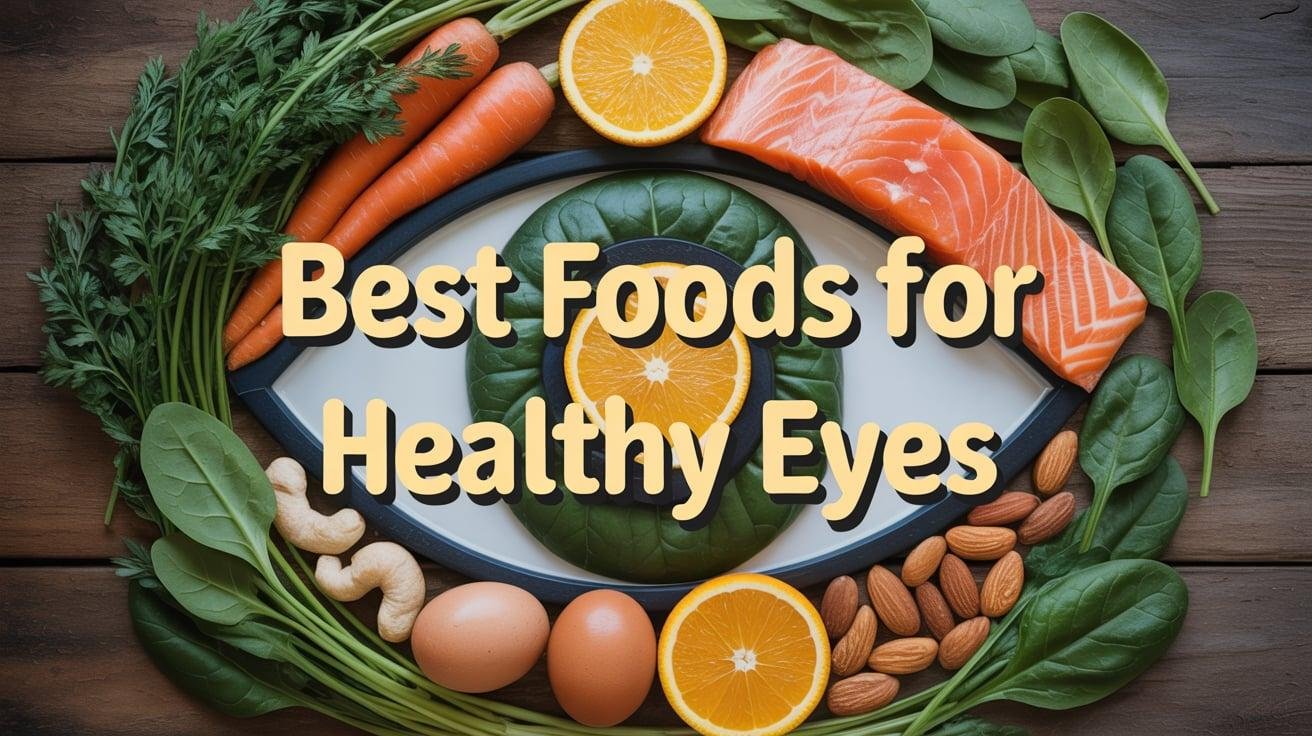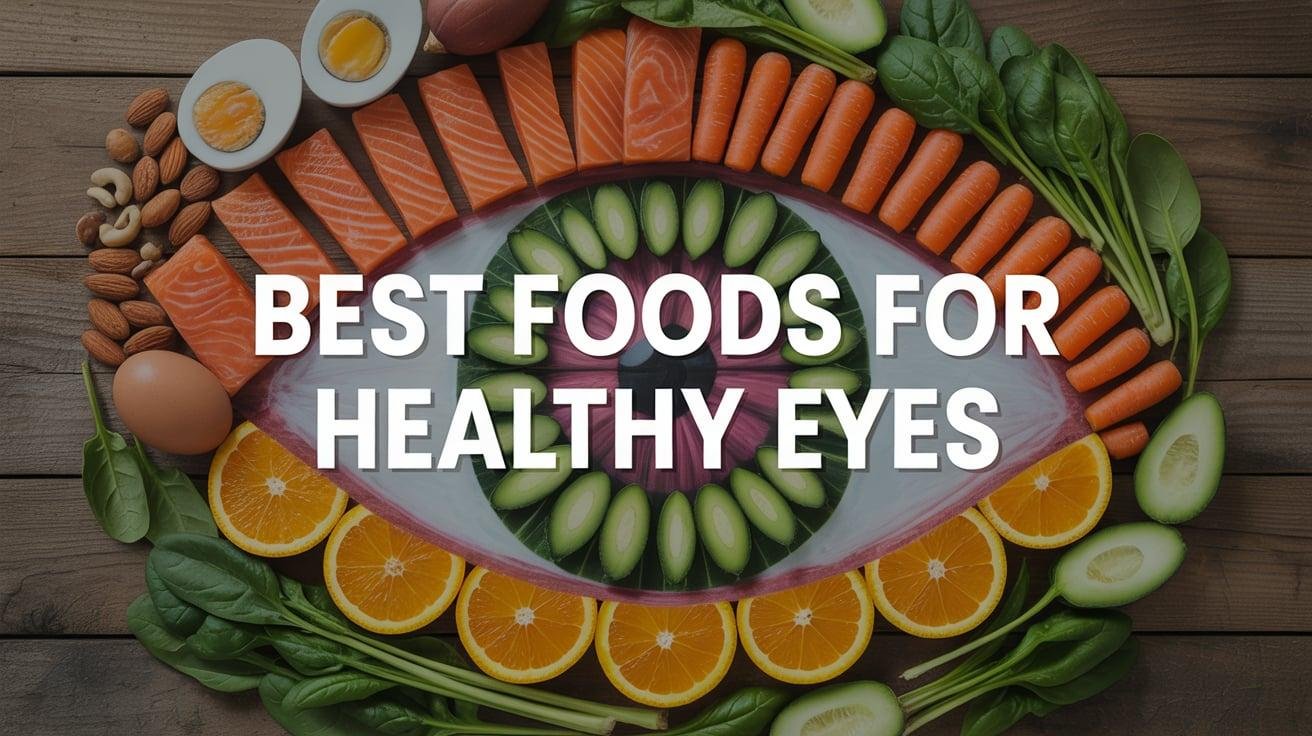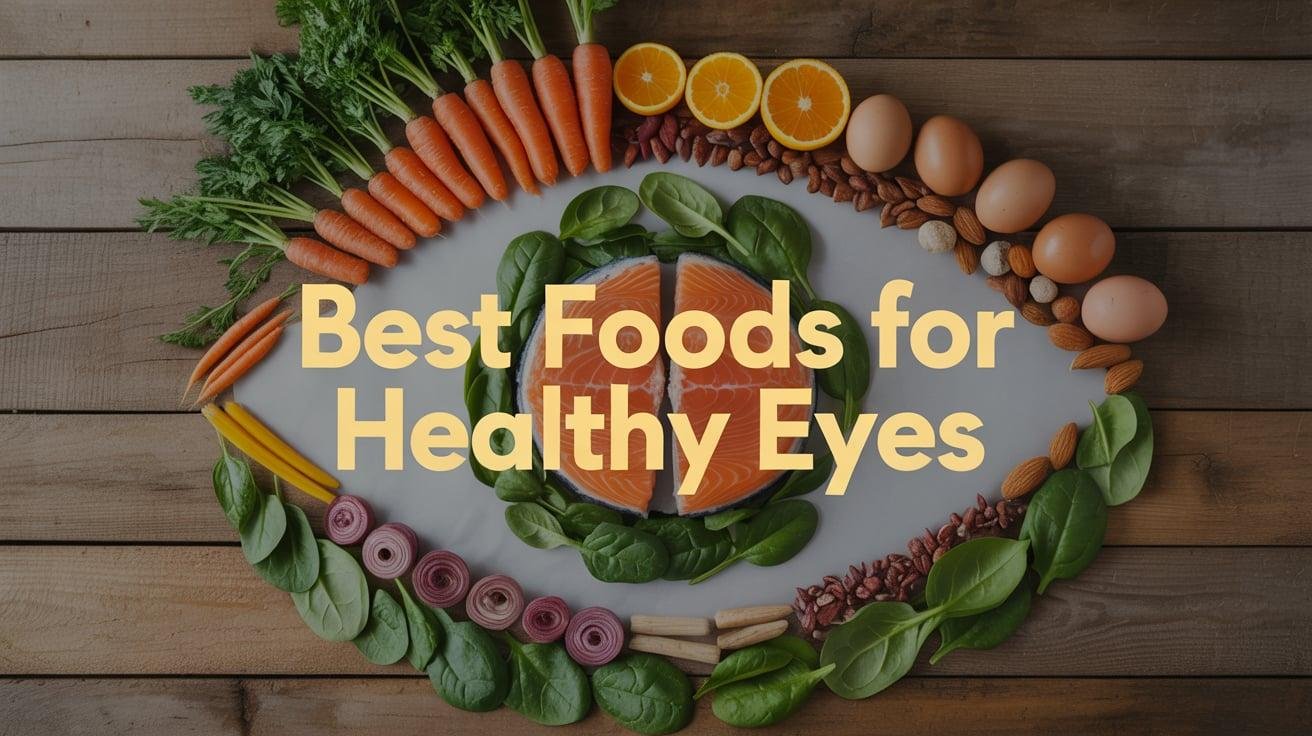Signs You Need More Iron | Symptoms of Iron Deficiency Explained
Feeling tired, dizzy, or pale? Discover the common signs you may need more iron and how to treat iron deficiency naturally through diet and supplements.

Discover the top 10 best foods for healthy eyesight. Learn how nutrients like vitamin A, omega-3s, and lutein support vision and protect your eyes naturally.
Your eyes are your windows to the world — and just like the rest of your body, they need the right nutrients to stay sharp and strong. A healthy diet rich in specific vitamins and antioxidants can help protect your eyes from age-related issues like macular degeneration, cataracts, and dryness.
Let’s explore the best foods to eat for healthy eyesight and how they benefit your vision.
Read More: Signs You Need More Sleep

Table of contents [Show]
Carrots are rich in beta-carotene, a type of vitamin A that helps the retina function properly. Vitamin A also prevents night blindness and dry eyes.
How to eat it: Add raw carrots to salads, blend into smoothies, or enjoy as a snack with hummus.
Salmon, sardines, mackerel, and tuna are loaded with omega-3 fatty acids, which help prevent dry eyes and reduce the risk of macular degeneration.
Tip: Eat fatty fish 2–3 times per week to keep your eyes lubricated and protected.
Spinach, kale, and collard greens are packed with lutein and zeaxanthin — antioxidants that filter harmful blue light and protect the retina.
Bonus: These nutrients also support overall skin and brain health.
Egg yolks contain vitamin A, zinc, lutein, and zeaxanthin, making them a top food for eye health.
Zinc helps the body absorb vitamin A and supports vision at night.
Oranges, lemons, and grapefruits are loaded with vitamin C, a powerful antioxidant that protects your eyes from free radical damage and may slow the development of cataracts.
Almonds, sunflower seeds, and hazelnuts are great sources of vitamin E, which protects cells in the eyes from damage caused by oxidative stress.
A small handful daily is enough to make a difference.

Broccoli combines vitamin C, beta-carotene, and lutein, making it one of the best vegetables for overall eye protection.
Steam it, stir-fry it, or blend it into soups for maximum benefit.
Kidney beans, chickpeas, and lentils contain zinc, which helps maintain the health of the retina and may protect against vision loss in aging adults.
Sweet potatoes are another excellent source of beta-carotene and vitamin E. They promote night vision and help protect the surface of the eyes.
Staying hydrated helps reduce dry eye symptoms and supports tear production. Drinking 8–10 glasses of water daily keeps your eyes moist and comfortable.
Eating a balanced diet with the right eye-friendly nutrients can help maintain sharp vision and reduce the risk of eye diseases as you age. Combine a variety of these foods throughout your week and pair them with healthy lifestyle habits like reducing screen time, wearing sunglasses, and getting regular eye checkups.

1. Can food really improve eyesight?
Yes, nutrients like vitamin A, omega-3 fatty acids, and lutein help protect your eyes and maintain sharp vision.
2. How often should I eat eye-healthy foods?
Daily. Incorporating a mix of fruits, vegetables, and healthy fats into your regular meals is best for long-term eye health.
3. What foods should I avoid for eye health?
Limit processed foods high in sugar, trans fats, and refined carbs, as they may increase your risk of eye diseases.
4. Are supplements as good as real food for vision?
Food is the best source of nutrients. Supplements may help if you have a deficiency, but they shouldn’t replace a healthy diet.
5. Does drinking water help with eye health?
Yes, staying hydrated helps prevent dry eyes and keeps tear production stable.
Knowledge Galaxy shares expert-backed insights on health, wellness, science, and daily living. Our mission is to simplify complex topics and empower you with practical knowledge for a smarter, healthier life.
Feeling tired, dizzy, or pale? Discover the common signs you may need more iron and how to treat iron deficiency naturally through diet and supplements.
Learn proven ways to keep your joints strong, flexible, and pain-free. Boost mobility, prevent injury, and maintain joint health at any age.
Discover the warning signs of Vitamin B12 deficiency — from fatigue and brain fog to nerve damage. Learn what causes it and how to treat it naturally.
